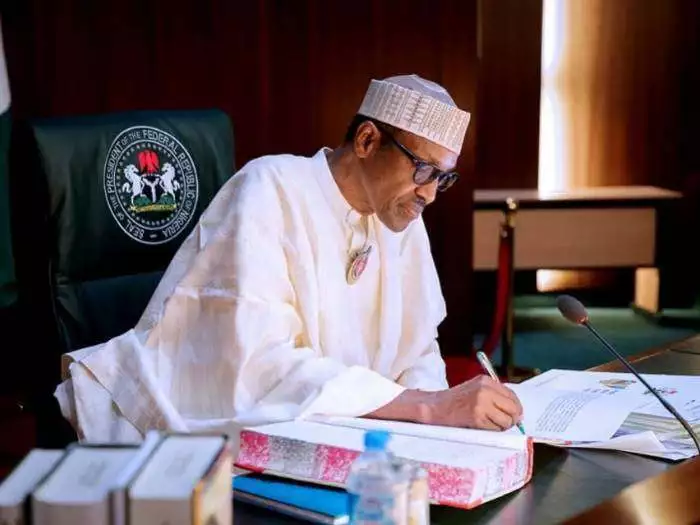The National Assembly has transmitted the re-amended Electoral Act Amendment Bill to President Muhammadu Buhari for assent.
The magazine learnt that the president is not likely to reject the bill this time around like he did last year after it was first transmitted to him.
“The president will sign the bill without any further delay since the NASS has addressed the issues he raised when the bill was transmitted to him last year.
“It is most likely that President Buhari will sign the bill before the end of the week. This is will not only promote the mutual relationship between the executive and the NASS, it will also set the template for the INEC to release the time table for next year’s election without further delay.
INEC Chairman Professor Mahmood Yakubu had stated penultimate week that the commission was awaiting the presidential assent to the bill before releasing the 2023 election time table.
“On the Electoral Amendment Bill currently before the National Assembly, the Commission is encouraged by the Senate President’s assurance to give priority attention to the Bill when the National Assembly reconvenes from its recess, which it did yesterday and the commitment by the President to assent to the Bill as soon as the issue of mode of primaries by political parties is resolved. We look forward to a speedy passage of the Bill, which is crucial to our preparations for future elections.
“As soon as it is signed into law, the commission will quickly release the Timetable and Schedule of Activities for the 2023 General Election based on the new law,” the INEC boss said in Abuja.
Buhari, we’ll recall rejected the bill last November citing some reasons, including the provision that made it mandatory for political parties to chose candidates for election through direct primary election.
The president also cited the cost of conducting direct primary elections, security challenges, and possible manipulation of electoral processes by political actors as part of the reasons for withholding his assent.
The NASS has now re-amended the bill with the provisions that political parties can adopt direct, indirect and consensus arrangement to select candidates for election.
Senator Bbajide Omoworare, the Senior Special Assistant on NASS Matters (Senate), to President Buhari disclosed on Monday that the bill has now been sent to the president for his assent, adding that the transmission of the bill was in line with the provisions of Section 58 (3) of the 1999 Constitution and the Acts Authentication Act Cap. A2 LFN 2004.
The presidential aide further stated that the Clerk to the National Assembly, Olatunde Ojo, transmitted the authenticated copies of the bill to the President on Monday.
According to him, “the Clerk to the National Assembly Mr Olatunde Amos Ojo has transmitted the authenticated copies of the Electoral Bill 2022 to the President of the Federal Republic of Nigeria Muhammadu Buhari GCFR on 31st January 2022,” he said.
“This was done in accordance with the provisions of Section 58 (3) of the 1999 Constitution of the Federal Republic of Nigeria (as amended) and the Acts Authentication Act Cap. A2 LFN 2004.
“Mr. President had withheld assent to the Electoral Bill 2021 transmitted to him on 19th November 2021. The Electoral Bill was thereafter reworked by the National Assembly and both the Senate and the House of Representatives passed same on 25th January 2022.”
Both the House of Representatives and Senate, last week passed the harmonised version of the bill.
Discover more from The Source
Subscribe to get the latest posts sent to your email.








